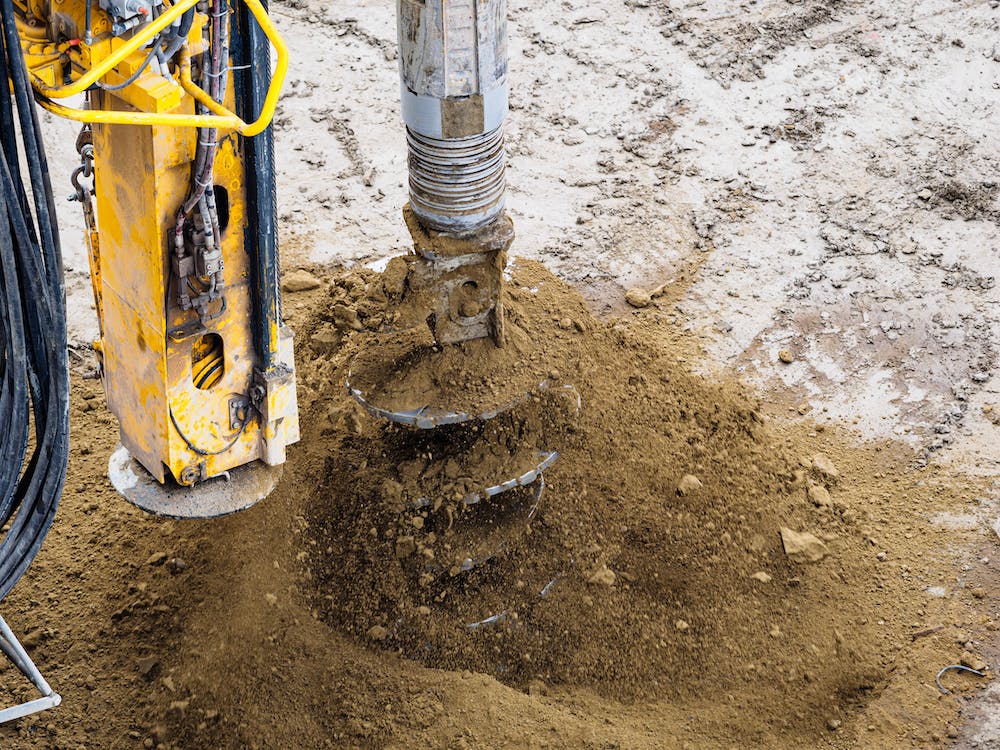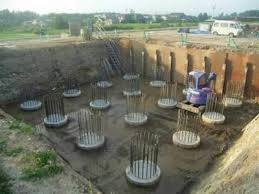How a Geotechnical Specialist Can Make Certain the Success of Your Building Structures
How a Geotechnical Specialist Can Make Certain the Success of Your Building Structures
Blog Article
The Importance of Geotechnical Engineering in Dealing With Ecological Difficulties and Enhancing Building Security
Geotechnical design serves as a keystone in the crossway of environmental stewardship and building and construction safety, giving important insights right into the behavior of soil and rock under numerous conditions. By applying tactical website investigations and customized mitigation procedures, geotechnical designers play a crucial duty in protecting both human lives and environmental honesty.

Function of Geotechnical Engineering
Geotechnical engineering plays an essential role in the design and building of infrastructure by resolving the behavior of soil and rock materials under various problems. This area of design is necessary for recognizing the communication between structures and the ground, that includes establishing the load-bearing ability of soil, evaluating stability, and forecasting possible settlement or failure.
Geotechnical designers are accountable for conducting site investigations, which entail tasting and testing dirt and rock to gather data on their chemical and physical buildings. This details is important for designing structures, maintaining walls, and various other earth-retaining structures that make certain security and longevity. Geotechnical engineering educates the choice of appropriate building methods and products, thus minimizing dangers associated with dirt actions.
Additionally, the assimilation of geotechnical design principles right into metropolitan preparation and environmental monitoring is important for resolving difficulties such as ground contamination and groundwater monitoring. By understanding geotechnical aspects, engineers can establish sustainable options that enhance the durability of framework against all-natural risks, while additionally promoting environmental stewardship. Eventually, the duty of geotechnical design is essential for achieving safe, resilient, and ecologically aware building and construction practices.
Soil Erosion Reduction
Dirt disintegration postures a significant risk to both ecological security and facilities integrity, affecting about 24 billion lots of productive dirt shed every year worldwide. This sensation is aggravated by factors such as deforestation, urbanization, and poor agricultural practices. Geotechnical engineering plays a pivotal role in developing effective soil erosion reduction strategies that safeguard both the environment and construction tasks.
One strategy requires the execution of disintegration control approaches such as plants growing, which supports soil through origin systems. In addition, the building and construction of preserving wall surfaces and terraces can properly minimize surface runoff and protect vulnerable locations from disintegration. Proper drainage layout is additionally vital; it lessens water build-up and directs excess drainage away from critical frameworks.
Additionally, geotechnical engineers use dirt stabilization strategies, such as the application of geotextiles and eco-friendly mats, to boost dirt cohesion and protect against deterioration - geotechnical engineer description. Routine tracking and analysis of erosion-prone websites enable prompt interventions, making certain long-lasting sustainability. By integrating these methods, geotechnical engineering not just mitigates the effects of soil erosion yet likewise adds to the durability of framework against ecological challenges, eventually fostering a much safer and more lasting developed environment
Groundwater Security Approaches
Groundwater acts as an essential resource for drinking water, farming, and industrial processes, making its defense necessary for environmental sustainability and public health and wellness. Reliable groundwater defense methods are critical in alleviating contamination threats and guaranteeing the durability of this source.

Normal tracking of groundwater quality is additionally vital, enabling very read the article early detection of contamination resources and assisting in timely removal efforts. Utilizing advanced modern technologies, such as geophysical surveys and remote picking up, aids in recognizing potential hazards to groundwater books.
Furthermore, public education and stakeholder involvement are important, fostering neighborhood assistance for groundwater security campaigns. all about geotechnical engineering. By combining regulative actions, technological innovations, and community involvement, we can develop a comprehensive framework that safeguards groundwater sources while advertising sustainable advancement and building and construction practices
Landslide Danger Monitoring
Landslides pose considerable dangers to both human safety and infrastructure, making efficient threat monitoring approaches important. Geotechnical engineering plays a critical role in identifying, evaluating, and mitigating landslide dangers. A thorough understanding of incline stability, soil technicians, and hydrology is vital for developing efficient danger administration strategies.
The initial step in landslide threat monitoring includes detailed website investigations, which include geological mapping and soil screening. These examinations help engineers evaluate the capacity for landslides by recognizing crucial elements such as slope angles, soil composition, and water content. Utilizing advanced technologies such as remote sensing and geophysical surveys can boost the precision of these analyses.
As soon as dangers are determined, suitable mitigation measures can be implemented. These might consist of engineering services such as keeping wall surfaces, water drainage systems, and incline stabilization techniques. Keeping an eye on systems ought to be developed to find indications of ground movement and adjustments in water levels, allowing for proactive treatments.

Enhancing Building And Construction Safety And Security
Building websites you can find out more frequently provide a myriad of hazards that can jeopardize employee security and task integrity. Geotechnical engineering plays an important role in improving construction safety by giving crucial insights into subsurface conditions. With detailed dirt and rock analysis, geotechnical designers can recognize prospective risks, such as soil instability, groundwater concerns, and seismic susceptabilities, which might compromise the safety and security of building tasks.
Executing geotechnical solutions, such as correct structure design and making use of preserving frameworks, minimizes these threats dramatically. These services not just make sure the security of the frameworks being constructed yet additionally create a much safer working setting for building and construction personnel. Additionally, rigorous monitoring and assessment of website problems throughout the construction process are crucial. Using advanced innovations like ground-penetrating radar and inclinometer systems allows real-time information collection, permitting prompt treatments when risks are detected.
Moreover, fostering a society of safety and security through training and adherence to developed security procedures further enhances building and construction site safety. By incorporating geotechnical knowledge into the planning and execution stages, construction tasks can achieve higher safety and security requirements, ultimately shielding employees and guaranteeing successful task completion.
Final Thought
To conclude, geotechnical engineering acts as an important technique in taking on environmental difficulties and advertising construction safety. With efficient soil erosion mitigation, groundwater protection approaches, and landslide threat management, geotechnical engineers add to the development of resilient infrastructure. The combination of these practices promotes a more secure construction setting and improves the sustainability Web Site of civil engineering tasks. Inevitably, the proficiency of geotechnical engineers is vital in guarding both all-natural resources and human lives against prospective risks.
Geotechnical design serves as a keystone in the crossway of environmental stewardship and building and construction safety, supplying critical insights into the actions of dirt and rock under numerous conditions. Geotechnical design notifies the choice of proper building methods and products, consequently lessening threats connected with soil actions.
Geotechnical engineering plays a critical duty in creating reliable soil disintegration mitigation strategies that secure both the atmosphere and construction jobs.
Additionally, geotechnical engineers use dirt stabilization techniques, such as the application of geotextiles and naturally degradable floor coverings, to enhance dirt communication and protect against degradation. Through thorough soil and rock evaluation, geotechnical engineers can determine prospective risks, such as dirt instability, groundwater concerns, and seismic vulnerabilities, which might compromise the security of building and construction activities.
Report this page